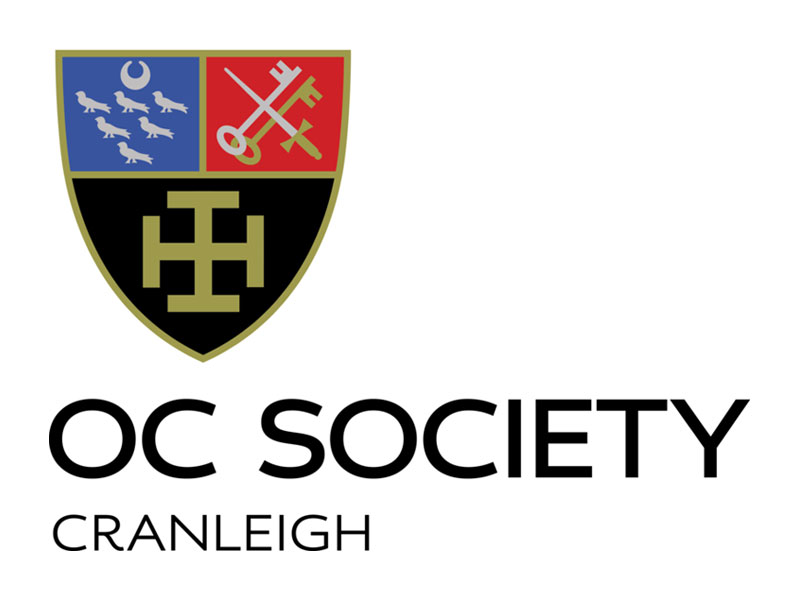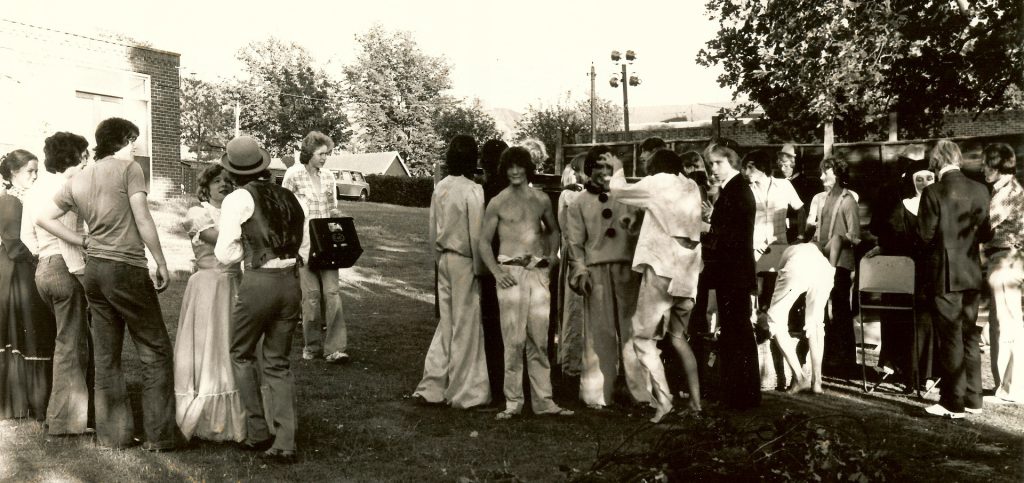The summer of 1976 has gone down in history as one of the hottest and driest ever, with records broken and at one point there were 15 consecutive days where the temperature topped 90°F degrees (32°C). Coming as it did on the back of a scorching summer the previous year and an abnormally dry winter, lakes and rivers dried up and the parched ground cracked. Pollution levels soared, tar on the roads melted, and there was a plague of ladybirds with entomologists estimating by late June there were as many as 23 billion in the southern counties.
Inevitably, the conditions had an increasing impact on Cranleigh life. In the early part of the summer term the weather was warm rather than hot, but shirtsleeve order was introduced from the first day. As the term progressed the temperatures soared
The worst affected were those sitting exams (which ran from mid June until early July) in the Speech Hall. “They used to keep the curtains drawn in the mornings to keep the sun out, but had to open them and the windows in the afternoon to let the breeze in,” recalled Jonathan Woodrow (2N 1978) while Bruce Viney said: “It was so hot during O levels that the sweat smudged everything I tried to write.” Ted Greeno (1N 1976) said that during one A level the temperature inside the Speech Hall was recorded at 92°F.
“I remember seeing a boy wearing shorts and no top, sitting in the library revising for his A levels with his feet in a bucket of cold water,” said Caroline Duff (Cubitt 1977) “I felt for the people having to study and swelter. But for me, that scene summed up the change from the rather uptight girls’ school I’d been at before. Cranleigh seemed much more flexible – and somehow theatrical and full of possibilities.”
Many masters moved lessons from the oppressive and stuffy classrooms outside, the trees on the South Field offering shelter for those with lessons in the Connaught Block. Any spot that offered shade was in demand. “I do remember sitting out around the back of the pool (outside the fence and trees) revising,” said Justin Spreckley (2N 1980). “It was elevated and got a bit of a breeze, and was secluded.”
The outdoor swimming pool became the social hub of the School, and the usual restrictions on the times it could be used were all but abandoned. “I can remember thinking ‘I should really be revising but it’s too hot so let’s go to the pool’,” said Peter Shanks (1&4 South 1976). “I seem to remember that dive-bombing at the pool was a popular thing to spend the afternoon doing.” Andrew Sindall, the senior prefect, said that people swam at every opportunity. “There was a lot of showing off to the girls who were trying to sunbathe around the edge in peace [but] I don’t think they were wildly impressed with such antics.”
A rota was drawn up to allow houses to use the pool after prep, and there was also a lot of late-night swimming by the Upper VIth, to which a blind eye was turned, and the Common Room. Mike Payne (MCR 1967-1996) said that Cubitt housemaster Lance Marshall “dared me to jump fully clothed off the top board … I did so with a huge shout, and was told later that I rudely disturbed the peace at the Prep School”.
In the daytime, the more enterprising junior boys supplemented their pocket money by visiting Rosie Polglase’s tuck shop for those camped out by the pool, charging a small fee for each item brought back.
The nights offered little respite. Those in the South houses high in the Connaught Block could throw open the windows and enjoy what little breeze there was. Derek Shanks (1&4 South 1980) said he slept under his bed as it was cooler, while Spreckley said he and others wetted their sheets with cold water to counter the heat. Some senior boys in the North houses slept on the fire escapes.
The usually lush grounds became parched and brown. Only the cricket squares and golf greens were allowed to be watered, and even then in limited amounts, so the cricket pitches became dangerous and there were a string of injuries. Ward said he remembered “The intense heat shimmer looking across across the Jubilee pitches towards the pavilion … it really was relentlessly hot.” Another said the outfields were so hard that the studs of his boots pushed through the sole and left bleeding holes in his feet. Cricketers were readily identified by cut and scared elbows and knees.
By the end of term Gatley’s pond had dried out and the bursarial department had to organise a rescue mission for the gasping fish left in the few puddles of water. A rescue mission was undertaken and more than 300 fish (mainly carp, with the largest weighing in at almost 5lbs) were removed to storage tanks. The ducks were provided with a tin bath next to their house on the island. The bursarial staff tool the opportunity to undertake clearing and maintenance work. “We should have a cleaned and restored Gatley’s and not left it a smelly swamp,” said the Bursar at the time.
A few weeks earlier Gatley’s had provided the backdrop to Comedy of Errors, one of the first outdoor productions staged at the School. Matthew Pragnell (2&3 South 1977) recalled cooling off in the pond between rehearsals, while another remembered walking past a week before the first night and seeing John Tolputt, the director, and the cast going through their lines in swimming costumes.
There were also regular fires in the surrounding countryside, the worst at Winterfold and Farley Heath where the School’s fire brigade were pressed into action to help the overstretched county services. “Geography lessons extended to visiting this area where I remember trying to stamp out some of these fires, but I only ended up singeing my trousers,” said Peter Jaffe (1 North 1980).
The heatwave eventually broke in late August and by the time the School returned in September the weather was cool and wet. Even then the drought had one last effect as the ground remained so hard that for the first fortnight of term only touch rugby was played.

